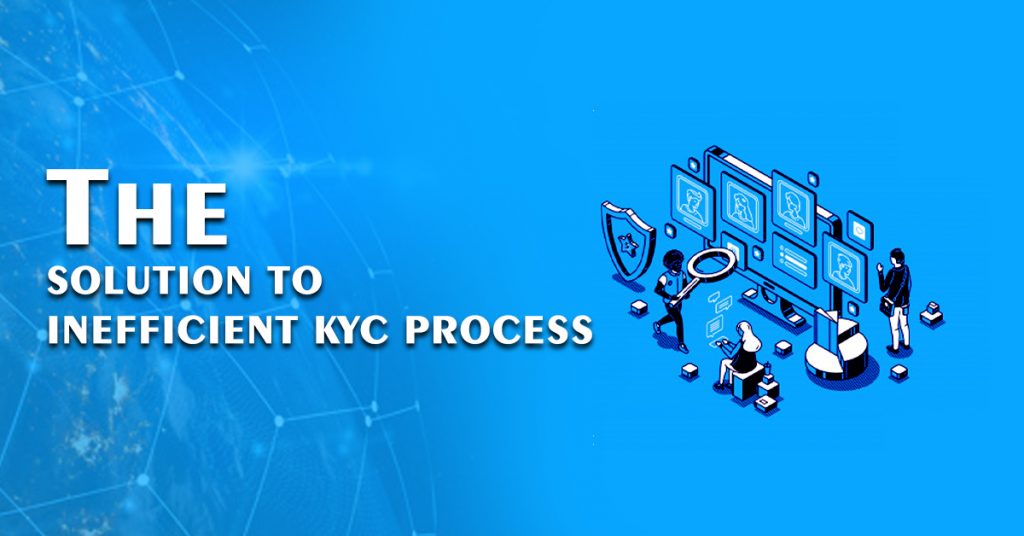
Today’s financial institutions’ Know Your Customer process is extremely costly and inconvenient for both banks and consumers. The practice is needless and boosts operating costs. Furthermore, it has little or no protection for consumer protection.
Many existing systems have become obsolete as a result of the advancement of blockchain technologies and are in need of an update. Blockchain’s capabilities were shown with the development of virtual currencies such as Bitcoin and Ethereum, which fully changed the digital currency framework.
By connecting blockchain-based software through a blockchain app development company India, or Dapps (Decentralized Applications), to smart contracts, you can massively increase the functionality and reliability of an existing system, lowering total costs for businesses.
Government-issued certificates, such as driver’s licenses, social security cards, or passports, will quickly verify an individual’s identity. Establishing an authentication factor for other identity outlets, on the other hand, poses a significant obstacle for organizations.
Security flaws in such programs have resulted in several cases of financial theft and money laundering. In this post, we will have a look at the intricacies and benefits that blockchain technology entails for improving the existing KYC process. Let’s get right into it!
Read : Choosing A Blockchain Platform Expedite Your Business Growth
Technical Proof of Concept: Blockchain Technology
Despite the apparent promise of the technology, the feasibility of a KYC utility must be checked in order to recognize its true applicability. To that end, KPMG Singapore and Bluzelle Networks collaborated with a consortium of three Singapore banks — HSBC, OCBC, and Mitsubishi UFJ Financial Group (MUFG) — as well as the Singaporean regulator Info-communications Media Development Authority (IMDA) to create a proof-of-concept KYC utility on a blockchain platform.
The aim of this proof-of-concept prototype was to test the technological aspects of a blockchain framework, such as utility functionality, stability, and scalability. The prototype was tested between February and May 2017 and passed the Monetary Authority of Singapore’s test scenarios, such as transaction speed and concurrency, as expected (number of concurrent transactions).
Following the establishment of the shared KYC network, the three banks adopted a procedure in which all new KYC specifications were first queried on the shared platform, and any current customer data were shared with customer approval.
Customer information was also checked by relevant third-party sources, and the details of the third-party validation were reported in the KYC public ledger, adding to the platform’s breadth of information. Both behavior, permits, and new data supplied by a customer or either of the three banks was monitored and registered.
In the end-to-end KYC process, information collection and analysis occupy the majority of the time, expense, and commitment, leaving fewer resources available to analyze and track consumer behavior for anomalies. It is time to reverse this ratio.
Banks will reduce the time taken to screen and check each customer by having quick access to clean, up-to-date customer data, freeing up money that can be best used on more challenging KYC challenges. A blockchain app development company India will surely act at the forefront of the blockchain technological revolution.
At the end of the proof-of-concept project, the banks cited the blockchain platform’s potential to increase overall performance and reduce the time required to complete requisite screening, resulting in a lower risk of financial fraud and increased responsiveness to customer needs.
Read : Blockchain Technology: How It Can Be Harnessed in 5 Surprising Ways?
Advantages of Blockchain for Enhancing KYC Process
Although other centralized implementations through a blockchain app development company India mitigate some of the KYC challenges, the blockchain architecture offers a modern and elegant path forward with immutability and security features that contribute to greater confidence in, and integrity of, the data. Among the advantages are:
Higher Operational Efficiency
By the use of a digital process flow and the opportunity to exchange consumer data These enhancements have the ability to dramatically reduce the time and effort taken in the early stages of the KYC process, thus speeding up consumer onboarding and decreasing KYC and regulatory enforcement costs.
Updated Customer Data
Including dynamic corporate partnerships while ensuring complete data confidentiality and consumer privacy Any time a KYC transaction occurs at a participating institution, the most recent information is entered into the public distributed ledger, enabling various entities to depend on the same checks and information up to a certain level. A blockchain app development company India can help you in getting the consumer data updated in real-time through blockchain technology.
Greater Data Transparency
The data made available by blockchain technologies enables every participant organization to demonstrate to regulators that the safe blockchain network delivers accurate details. A blockchain KYC utility does not eliminate the need for financial firms to conduct consumer scanning and tracking.
Instead, it offers a simplified method for gaining quick and safe access to clean, up-to-date consumer info. As a result, labor-intensive knowledge collection, total KYC processing time, and related costs are reduced. A blockchain app development company India can leverage blockchain technology for ensuring a higher level of data transparency.
Greater Value For Institutions & Customers
A blockchain KYC utility may also provide consumers with a clearer view of how consumers have been onboarded and how underlying KYC knowledge is being used. As a result, regulators will be able to better interpret consumer conduct.
All activities performed by financial institutions and consumers would be completely registered and monitored, and all platform operation data would be fully auditable.
From the view of the consumer, a financial institution’s use of a KYC utility will boost the customer experience and overall loyalty by making operations more timely and efficient.
Read : Top Skills You Need to Be A Blockchain Developer
Conclusion
A blockchain utility does not address any of the KYC challenges that financial institutions face today. After acquiring KYC data, they must also verify the information supplied by the utility in accordance with regulations and conduct recurring surveillance.
AI and cognitive processing, among other technologies, can help drive greater productivity in these and other tasks. When combined with other innovations, a blockchain KYC utility has the ability to significantly minimize the burden of time and expense involved with KYC processes, while also offering greater transparency to regulators and a stronger user experience.









